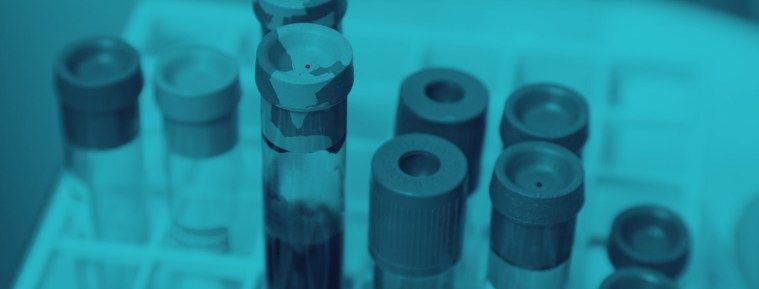Jan 18, 2021
NASA discovered a dark, freaky pit on Mars and stared into the shadowy abyss
Posted by Quinn Sena in category: space
Enhance!
If you gaze long into an abyss, the abyss will gaze into you. Nietzsche could have been talking about Mars.
Enhance!
If you gaze long into an abyss, the abyss will gaze into you. Nietzsche could have been talking about Mars.

No that’s not clickbait.
Being able to stop and reverse aging is probably something every single person has yearned for at some point in their life. Now researchers are finally seeing successful implementations of methods for reversing aging in Animal cells. This creates the potential for countless benefits for humans. These range from simply preventing age related illness all the way to allowing women the opportunity to have kids at any point in their life when they are ready. We are living in very exciting scientific times.
References:
A team of researchers affiliated with several institutions in China has used drones to create a prototype of a small airborne quantum network. In their paper published in the journal Physical Review Letters, the researchers describe sending entangled particles from one drone to another and from a drone to the ground.
Computer scientists, physicists and engineers have been working over the last several years toward building a usable quantum network —doing so would involve sending entangled particles between users and the result would be the most secure network ever made. As part of that effort, researchers have sent entangled particles over fiber cables, between towers and even from satellites to the ground. In this new effort, the researchers have added a new element—drones.
To build a long-range quantum network, satellites appear to be the ideal solution. But for smaller networks, such as for communications between users in the same city, another option is needed. While towers can be of some use, they are subject to weather and blockage, intentional or otherwise. To get around this problem, the researchers used drones to carry the signals.
Happy MLK Day!
MLK/FBI director Sam Pollard chronicles the FBI’s campaign against Martin Luther King Jr., which included sending King a letter suggesting that he kill himself.
Circa 2017
Livescience.com | By LIVESCIENCE
Two tiny diamond anvils have been used to squeeze hydrogen to high enough pressures to produce solid metallic hydrogen, a long-theorized form of the element.
On Januray 25th, we will discuss different aspects of longtermism — a concept of effective altruism. To decide which ist the best action to take we usually consider the effects of our actions on the short-or medium-term future — whether we save someone’s life, or mitigate sexism or racism in the next generation. According to longtermism that is wildly mistaken. The value of our actions is determined almost exclusively by their effects on the future in the very long-run — the next millions and billions of years. Their effects on the next 100 or even 1000 years are just about irrelevant. Our everyday thinking is radically short-sighted, and common evaluations perhaps dramatically wrong. In this online meetup, we will look at a compelling justification for longtermism, at its historical roots, and some of its practical implications — e.g. concerning existential risks, or the idea that our time might be the most important in the history of humanity. Free discord session on 9:30 — 11:30 AM PST 11:30 — 13:30 AM DST.
What is the best action we can take? According to longtermism we should consider the effects on the future in the very long run — the next millions and billions of years — to answer this question.
SpaceX will launch its first batch of Starlink satellites in 2021 on Tuesday (Jan. 19) to expand the company’s growing megaconstellation and you can watch the action live online.
Researchers from Tokyo Metropolitan University have discovered that fruit flies with genetic modifications to enhance glucose uptake have significantly longer lifespans. Looking at the brain cells of aging flies, they found that better glucose uptake compensates for age-related deterioration in motor functions, and led to longer life. The effect was more pronounced when coupled with dietary restrictions. This suggests healthier eating plus improved glucose uptake in the brain might lead to enhanced lifespans.
The brain is a particularly power-hungry part of our bodies, consuming 20% of the oxygen we take in and 25% of the glucose. That’s why it’s so important that it can stay powered, using the glucose to produce adenosine triphosphate (ATP), the “energy courier” of the body. This chemical process, known as glycolysis, happens in both the intracellular fluid and a part of cells known as the mitochondria. But as we get older, our brain cells become less adept at making ATP, something that broadly correlates with less glucose availability. That might suggest that more food for more glucose might actually be a good thing. On the other hand, it is known that a healthier diet actually leads to longer life. Unraveling the mystery surrounding these two contradictory pieces of knowledge might lead to a better understanding of healthier, longer lifespans.
A team led by Associate Professor Kanae Ando studied this problem using Drosophila fruit flies. Firstly, they confirmed that brain cells in older flies tended to have lower levels of ATP, and lower uptake of glucose. They specifically tied this down to lower amounts of the enzymes needed for glycolysis. To counteract this effect, they genetically modified flies to produce more of a glucose-transporting protein called hGut3. Amazingly, this increase in glucose uptake was all that was required to significantly improve the amount of ATP in cells. More specifically, they found that more hGut3 led to less decrease in the production of the enzymes, counteracting the decline with age. Though this did not lead to an improvement in age-related damage to mitochondria, they also suffered less deterioration in locomotor functions.
We’ve finally made a room-temperature superconductor, so materials that transport electricity without wasting any of it are within our grasp.

I’m curious what biomarkers people here currently track? I did some research and came up with these 20 but any you would add/take away? (9 of them were mostly included to be able to use Morgan Levine’s biological age calculator).
This is the first article in a two-part series on the best aging biomarkers to track for longevity. The second article will compare different tests and testing companies on the market and supply a sample testing schedule you can use.
Continue reading “20 Best Aging Biomarkers to Track for Longevity” »
